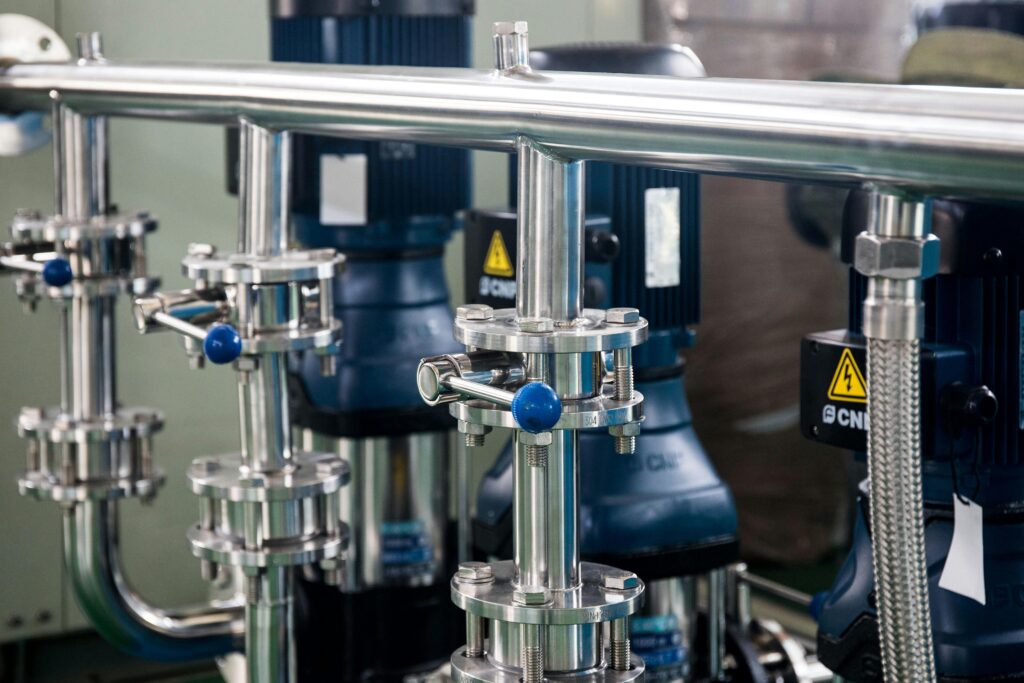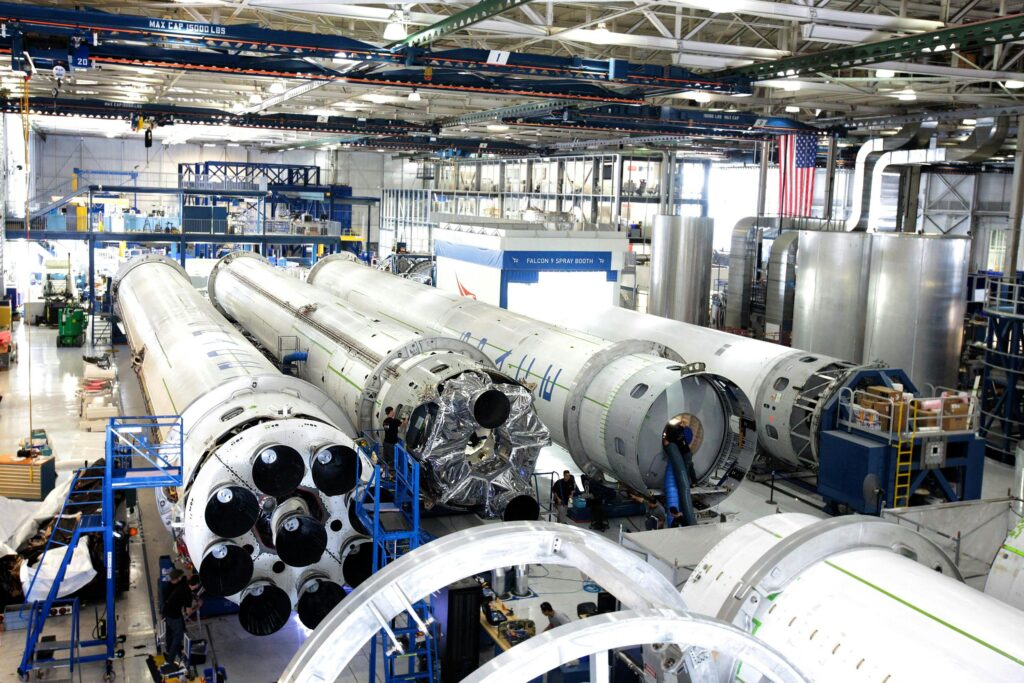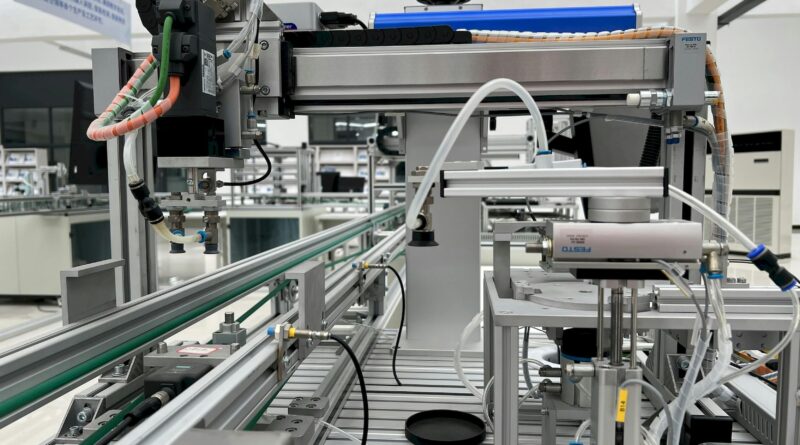Industries Revolutionized: Top 10 Automation Tools for Better Efficiency

Table of Contents
Automation technologies of all types are making their way into industries worldwide, and it is just happening to extrapolate;}. The platform is part of a fast-growing digital trend—Industry After Industry — from Manufacturing and healthcare to Logistics.
More Retail automation tools are changing the provisioning processes across all fields, enabling larger profit margins achieved through improved productivity at reduced costs.
As businesses search to automate as much of their offering stack supports staying competitive, grasping and adeptly deploying these tools has never been so important.
We will explore in this blog the top automation tools that are considered industry changers today and add immensely to innovation & growth.
Introduction to Automation in Industries
Definition: Automation — using technology to perform tasks with or without human intervention. The very idea is well known and has been for decades.
Yet it wasn’t until recently that a similar approach gleaned widespread adoption elsewhere, powered by modern achievements in artificial intelligence (AI), machine learning (ML), robotics, and more.
They automate redundant tasks and eliminate human errors to improve decision-making. These activities mentioned above are streamlined using automation tools so that the industries can concentrate on a different practical part of their work.
The repercussions of this event that has afflicted industries appear to be limitless. Manufacturing production lines have traditionally benefited from automation tools, which when correctly set up and configured, help complete the correct high-speed assembly process.
This allows for further investments, slowly automating repetitive tasks such as data entry, scheduling patient appointments, and many others, demonstrating the organisms on A For Autoresponders.
Supply Chains
Automation increases efficiency along the supply chain by helping better manage stock levels and ensure timely delivery through logistics.
When the benefit of Automation is obvious, and there is continual growth in technology, this factor will affect industries even more aggressively.
Top Automation Tools Transforming Industries
1. Robotic Process Automation (RPA)
Robotic process automation RPA is a broadly applied option for all businesses. Bots perform the same functions as humans (i.e., typing on keyboards, entering data, and processing business transactions within an application or graphical user interface).
These bots are suitable for tasks that must be done quickly and accurately, although they may run clientside 24/7. RPA has rapidly been adopted by healthcare and retail industries, leading the game in automating their operations and eliminating obsolete routine work from the operational workforce.
In banking, RPA has found an assistant to aid in automating customer onboarding (Know Your Customer) and document verification procedures for faster account opening by the compliance department.
RPA is used for billing and claims processing. Automation in healthcare allows data to be accessed more accurately.
2.Artificial Intelligence (AI) and Machine Learning (ML)
The era of AI and ML —AI (Artificial Intelligence) & Machine Learning are creating sheer Automation; they can analyze data in record time and provide valuable insights and predictions, which help optimize it.
AI-powered tools can revolutionize and deliver game-changing insights to those industries by answering questions that were long answered illogically.
We are used for personalized retail marketing, which analyzes purchasing behavior and advises on products.
For Manufacturing, ML algorithms predict equipment failures by detecting early signs of potential failure so that companies can address the issue before a breakdown happens and thus prevent downtime.
In the medical field, we already see an increasing use of AI and ML in examining medical records to predict patient outcomes or help diagnose a disease.
3.Industrial Robotics
Industrial robotics has been entrenched in Manufacturing for years, but advancements have made these robots more innovative and versatile, with the ability to undertake nuanced tasks.
These industrial robots are used in automotive, electronics, and consumer goods, performing tasks like welding, painting, or assembly.
There is also increasing use of collaborative robots, or cobots. While traditional industrial robots are programmed to perform specific tasks, cobots can work side-by-side with human workers — at least for jobs that involve some combination of precision and strength.
It is leading to a transformation in industries regarding increasing productivity and lowering workplace accidents.
4.Internet of Things (IoT) Automation
In other words, IoT is based on the interconnection of devices and data transmission over the Internet. IoT automation tools have brought seismic changes to industries with real-time monitoring and data acquisition, allowing remote control over industrial processes.
Deccan has improved in capturing yields by monitoring soil types, weather conditions, and op health, which needs IoT devices in agriculture.
Vehicles can have a tracking device run. Real-time data on the position and status of goods in transit via GNSS results in unprecedented track-and-trace capabilities for supply chain decision-makers by minimizing human error due to lost or damaged shipments.
Moreover, intelligent factories use IoT operation automation to assist energy consumption and equipment performance management.
5.Cloud-Based Automation Platforms
The services you can automate through cloud-based automation platforms will depend on the Industry. All the way through said in-memory database into various tools like workflow automation, data integration, and analytics — available via the cloud.
Cloud labour-run operations are reducing IT costs and transforming finance, healthcare & manufacturing activities.
For instance, finance leverages cloud-based platforms to automate a part of the financial reporting and compliance processes, thus aiding in fixing errors that get reduced over time.
One use case is automating patient record generation and reducing billings for operations costs using cloud-based platforms (e.g., the healthcare industry).

6.Supply Chain Automation Tools
By automating your supply chain, you can revolutionize different industry sectors by optimizing inventory management and lead times and improving the overall efficiency of any given supply chain.
AI/ML and IoT — Real-time visibility across the supply chain using these tools;
Supply chain automation tools are used to predict demand and inventory levels and optimize routes in the retail Industry.
In the automotive Industry, they trace and follow the parts and materials that should feed production lines at any time. Through the supply chain process, Automation and industries can reduce costs, improve customer satisfaction, and respond more quickly to changes in the market.
7.Customer Relationship Management (CRM) Automation
The impact of customer relationship management (CRM) automation tools on changing how we interact with our customers and their overall experience has been massive across sectors.
I am automating customer data management, monitoring interactions, and having a BCom for messaging customers.
24) CRM automation tools have played a crucial role in enabling most industries (retail, finance, telecommunications, etc…) to maintain driving experience when it comes to automating customer service.
For example, CRM automation in retail allows for sending personalized marketing emails (dynamic content) based on customer preferences and purchases. More
Another example would be using finance CRM automation to record client interactions and provide tailored financial advice.
8.Business Process Management (BPM) Automation
Business Process Management (BPM) automation software optimizes end-to-end business processes across various industries.
Automation and Workflow tools that manage workflows reduce bottlenecks, improving end-to-end process efficiency.
Industries -Healthcare, Manufacturing, and finance use BPM automation tools to standardize processes, reduce errors, and enable compliance.
An example of this is in the healthcare field, where businesses make use of BPM automation to keep track of patient care workflows and ensure that everything gets done for them on time.
For Manufacturing, BPM automation allows for streamlined production processes so that lead times are reduced or the quality of products is improved.
9.Virtual Assistants and Chatbots
Automation aids such as virtual assistants and chatbots are revolutionizing industries primarily through enhanced customer service and more efficient administrative processes.
Using AI, these tools respond to customers, address their queries, and help them book appointments or place orders.
Industries such as retail, hospitality, and even finance are taking to virtual assistants and chatbots for round-the-clock customer support, making their existing customer base happier.
In a real-time scenario, chatbots are utilized in the retail Industry to help customers by asking product inquiries and tracking orders.
For example, virtual assistants have been deployed in the financial services industry to assist with task-based customer requests such as balance inquiries or advice on investment planning.
10.Predictive Maintenance Tools
These predictive maintenance tools are rewiring several industries to allow them to predict failure before their earnings.
Using AI, ML, and IoT technologies, these tools analyze data generated by sensors to predict equipment health so maintenance can be performed in advance.
Predictive maintenance reduces downtime, elongates equipment life, and boosts overall operational efficiency, as industries like Manufacturing, energy, and transportation are already doing.
For example, consider Manufacturing, where predictive maintenance apps can monitor machinery and schedule downtime based on use patterns or performance data.
The energy sector can utilize these tools to monitor the condition of power plants and spot potential failures before they cause expensive outages.
Conclusion
Different industries are being radically transformed by automation tools that make them more efficient, lower costs, and Allow companies to focus on a higher strategic level of work.
Robotic Process Automation (RPA), Artificial Intelligence (AI), Industrial Robotics, and IoT automation are tools scripting a new age of innovation and growth in different industries.
As more and more industries turn to Automation, they can expect increased productivity and competitiveness. With the proper use of automation tools, businesses can remain competitive in an increasingly automated environment.
FAQs: Understanding Automation in Different Industries
Which Industry uses Automation the most?
Automation is widespread in numerous fields, with the manufacturing industry considered one of the highly automated industries. Production process automation is increased to reduce human error and improve efficiency.
On the factory floor, robots build cars to exceedingly tight and consistent tolerances, speeding up time-to-market for getting cars onto dealer lots.
For products with more significant amounts of intricate components, such as those of many electronics Manufacturing companies, Automation facilitates the assembly and production process in ways that could not be achieved through traditional means.
The widespread application of Automation in these industries has metamorphosed them as more efficient and competitive worldwide.
What are the five ways Automation has helped the manufacturing industry?
Quicker production cycles:
Automation can produce more products faster, allowing manufacturers to produce more without sacrificing speed. Output is multiplied compared to manual labor, as machines can operate continuously.
Improved Quality Control:
Automated systems can execute exact steps with detail, ensuring
prone-to-make-mistakes human handiwork is eliminated.
As a result, the quality of our products has improved, and fewer defects have been found.
Saves Cost: Automation helps reduce labor prices and needs less human staff to perform repetitive, dangerous tasks.
This means businesses can direct their funds elsewhere, say, for instance, research and development or marketing,
Increased Safety:
Dangerous tasks are done by Automation, minimizing the chance of injury to workers. Robots can enter hazardous environments or operate in extreme conditions where humans are unsafe.
Automated systems can easily be reconfigured and resized to adapt to changes in production requirements, including adding a new product line or responding to fluctuations in demand.
Which automation tool will be in demand in the future?
The more industries change, however, the greater the need to adopt specific automation tools. Out of these, Artificial Intelligence (AI) based automation tools emerge as a frontrunner for being the future of an industry.
AI-driven tools allow machines to learn from data, make decisions, and predict outcomes, which is valuable nowadays with the wide range of industries that rely on automated systems.
For instance, AI-based diagnostic tools can process medical images quickly and more reliably than human doctors in the healthcare sector. AI in Manufacturing — Optimize production schedules, predict equipment failure, and design new products.
As industries seek more innovative and efficient working methods, AI-driven automation tools will be increasingly crucial.
What is the most advanced automation technology?
Robotic Process Automation (RPA) with AIThe most advanced automation technology we have now is Robotic Processing.
Automation.AutoField_management RPA automates routine tasks by doing things like data entry or transaction processing like a human does. However, AI takes this to another level of sophistication as machines can interpret and learn from these activities.
This duo enables automating the more complicated process that needs decision-making and some other specific problem-solving. For local industries, RPA with AI can read and understand infinite data that humans cannot do; it detects fraudulent activities even as other intelligent bots converse through chatbots.
This technology is as sophisticated an automation improvement as possible since it makes the work process more efficient and adds a new layer that was impossible beforehand.

